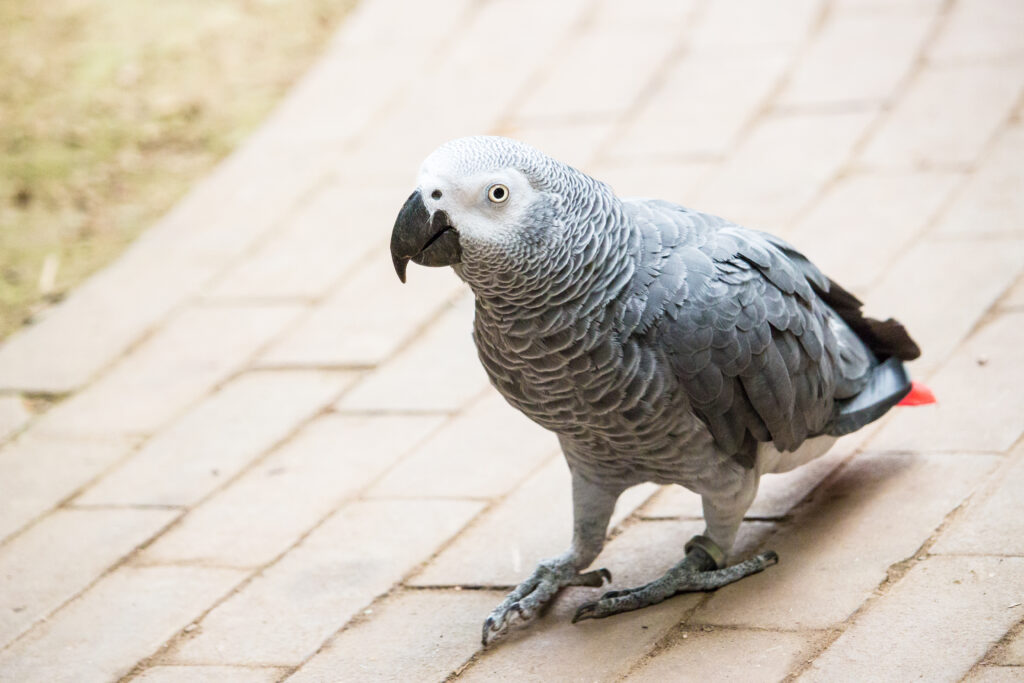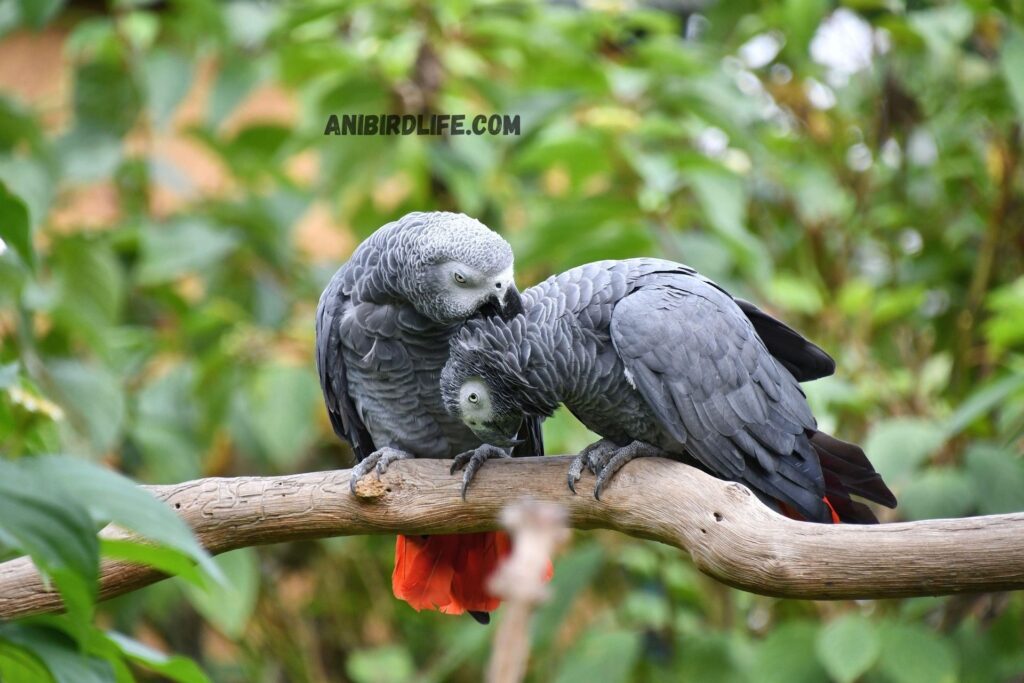African Grey Parrots are often hailed as the most intelligent birds on the planet. Known for their exceptional cognitive abilities, remarkable mimicry skills, and emotional depth, these birds have captivated bird enthusiasts, researchers, and pet owners alike.
In this article, we’ll explore why African Grey Parrots are considered the “Einstein of the Bird World,” their unique characteristics, care requirements, and much more.
Why Are African Grey Parrots So Intelligent?
African Grey Parrots (Psittacus erithacus) are indigenous to the lush rainforests of West and Central Africa.
They are renowned for their problem-solving skills, ability to mimic human speech, and emotional intelligence. Research indicates that African Grey Parrots have the ability to grasp concepts such as shapes, colors, and numbers, and can even use words in the correct context.
One famous African Grey, Alex, was the subject of a 30-year study by animal psychologist Dr. Irene Pepperberg. Alex could identify objects, count, and even express desires, proving that these birds possess cognitive abilities comparable to those of a young child.

Characteristics of African Grey Parrots
1. Appearance
African Grey Parrots are medium-sized avians known for their impressive and distinctive appearance.
They have a predominantly grey plumage, with a bright red or maroon tail (depending on the subspecies). Their eyes are surrounded by a patch of white skin, giving them a distinctive look.
There are two main subspecies:
- Congo African Grey: are larger in size, featuring a lighter grey shade and a vibrant red tail.
- Timneh African Greys: are smaller in size, featuring a deeper grey hue and a maroon-colored tail.
2. Lifespan
African Grey Parrots are known for their longevity, often living between 40 to 60 years in captivity. With exceptional care, some have been known to reach up to 80 years.
3. Intelligence and Mimicry
African Greys are exceptional mimics. They can replicate human speech, environmental sounds, and even other animals’ calls with incredible accuracy. Their ability to understand and use words contextually sets them apart from other parrot species.
4. Emotional Sensitivity
These parrots are incredibly social and develop deep, lasting connections with their human companions.
They are sensitive to their environment and can become stressed or depressed if neglected or exposed to negative stimuli.
Caring for an African Grey Parrot

Caring for an African Grey Parrot is a long-term responsibility that demands time, attention, and resources. Here’s everything you need to know to ensure your feathered companion thrives:
1. Diet
A well-rounded diet is essential for maintaining the health and well-being of an African Grey Parrot.
Their diet should include:
- High-quality pellet food (60-70% of their diet).
- Fresh fruits and vegetables (e.g., apples, carrots, leafy greens).
- Nuts and seeds should be offered in moderation due to their high fat content.
- Calcium supplements (to prevent deficiencies, which African Greys are prone to).
Steer clear of giving them avocado, chocolate, caffeine, or alcohol, as these substances are harmful and toxic to birds.
2. Housing
African Greys need a spacious cage to thrive. The cage should be:
- The enclosure should be a minimum of 3 feet in width, 2 feet in depth, and 4 feet in height.
- Furnished with perches, engaging toys, and foraging opportunities to keep them mentally active.
- Positioned in a calm, well-lit space, sheltered from drafts and direct sunlight.
3. Mental Stimulation
These highly intelligent birds require continuous mental engagement to avoid boredom and potential behavioral problems. Offer:
- Puzzle toys.
- Training sessions (e.g., teaching them new words or tricks).
- Social interaction (they thrive on companionship).
4. Health Care
Frequent veterinary visits are important to maintain your parrot’s overall health and well-being.
Watch for signs of illness, such as:
- Changes in appetite or behavior.
- Feather plucking.
- Discharge from the eyes or nostrils.
African Grey Parrots in the Wild
In their natural habitat, African Grey Parrots live in flocks and rely on their intelligence to forage for food, avoid predators, and communicate with each other. Unfortunately, they are classified as Endangered due to habitat loss and the illegal pet trade. Conservation efforts are underway to protect these magnificent birds and their ecosystems.
FAQs About African Grey Parrots
1. How long do African Grey Parrots live?
African Grey Parrots can live for 40 to 60 years in captivity, with some reaching up to 80 years with proper care.
2. Can African Grey Parrots really talk?
Yes, African Greys are among the best talkers in the bird world. They can mimic human speech and even use words contextually.
3. Are African Grey Parrots good pets?
African Greys make wonderful pets for experienced bird owners who can provide the time, attention, and care they need. They are not recommended for first-time bird owners due to their complex needs.
4. What do African Grey Parrots eat?
Their diet should consist of high-quality pellets, fresh fruits and vegetables, nuts, and seeds. Avoid toxic foods like avocado and chocolate.
5. How do I keep my African Grey Parrot happy?
Provide mental stimulation through toys, training, and social interaction. A balanced diet, a spacious cage, and regular veterinary care are also essential.
6. Why is my African Grey Parrot plucking its feathers?
Feather plucking may indicate stress, boredom, or underlying health problems.
Consult a veterinarian to determine the cause and address it promptly.
7. How can I teach my African Grey Parrot to talk?
Begin with basic words or phrases and repeat them regularly for best results.
Reward your parrot with treats and praise when they mimic you. Be patient, as learning takes time.
8. Are African Grey Parrots noisy?
African Greys can be noisy, especially during the morning and evening. However, their vocalizations are generally less shrill than those of other parrot species.
9. Do African Grey Parrots need a companion?
While African Greys can bond closely with their human owners, they may also benefit from the companionship of another bird, especially if left alone for long periods.
10. How can I help conserve African Grey Parrots in the wild?
Support conservation organizations, avoid purchasing wild-caught parrots, and raise awareness about the threats they face.
Conclusion
African Grey Parrots are truly the “Einstein of the Bird World,” thanks to their unparalleled intelligence, mimicry skills, and emotional depth. While they make fascinating and rewarding pets, they require dedicated care and attention to thrive. By understanding their needs and providing a loving environment, you can enjoy a lifelong bond with these extraordinary birds.
Whether you’re a seasoned bird owner or simply an admirer of these incredible creatures, African Grey Parrots are a testament to the wonders of the avian world. Let’s celebrate and protect these remarkable birds for generations to come!
